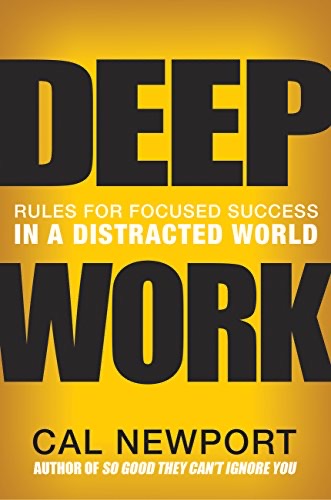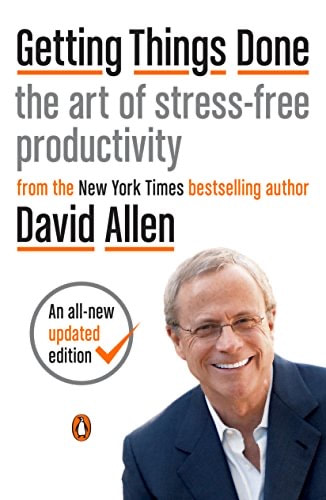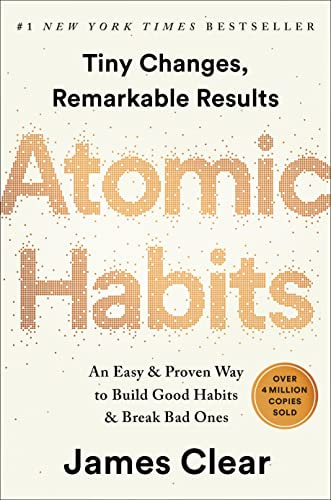|
This article contains affiliate links … If you choose to purchase, this means I receive a (very) small commission at NO EXTRA COST to you!
What does it mean to be productive?
If you asked me this question during my teenage years, I'd answer like a factory worker - you pull levers, push buttons, flip patties, etc. For example, my family's first business was a dry cleaners and our second was a liquor store. These were stores anyone could run. It didn't matter who was at the helm or who we hired. No degree or skillset required. But today, productivity is something very different. It's not just punching in and punching out after a certain amount of hours. It's about creating valuable products and ideas, something unique that no one else can do. That is ... if you want to be successful and not just another commodity. Though, in order to accomplish this you have to protect your time - because the modern world is a giant distraction machine that will pull you away from your most important work every chance it can. The cards are stacked against you. So in this article, I want to share the productivity framework that has worked for me: Strategy + System + Automation You choose the right work strategy to enhance your focus, set up a system so you have everything you need wherever and whenever you need it, and use automation to keep things humming. For the rest of this post, I'll briefly discuss the 3 books I developed this framework from. So whether you're struggling to find more practice time - or trying to get more mileage out of your sessions - if you like what you read today, I hope you get these books and examine them on a deeper level. The Best Books on Productivity in 2023Strategy
What is "Deep Work?"
Cal Newport (author) defines it as:
If productivity is a car, Deep Work is your fuel. To succeed today, it's not enough to put out quality work. You need both quality and quantity. As Newport says, you need to produce at an elite level. But there are 2 obstacles in front of you:
Most schools and businesses love to drown people in shallow work, which Newport describes as, "non-cognitively demanding, logistical-style tasks, often performed while distracted." The problem with shallow work is that it can be done by anybody and won't contribute much new value . So if your job consists mostly of shallow work, find a new one as fast as you can - because you're easily replaceable. In addition, we're bombarded with distractions: either from people emailing you nonstop or getting sucked down the internet rabbit-hole. What you read in Deep Work will give you a clear set of instructions for distraction-free focus on your most important work. Useful IdeasThe first thing I learned is to choose the right deep work strategy. Newport calls these "philosophies." Here they are in no particular order:
But don't think you have to stick with one forever - if your schedule changes, you can just switch your approach. And it's even more powerful when you learn to combine them together. Read this blog post if you're interested in how I utilize the journalistic and rhythmic philosophy together. Secondly, I learned about recommendations on how to enhance or maintain the quality of your concentration - much of which is centered around controlling your attention (staying off the internet). Here are a few:
With the principles from this book, I've completely transformed the way I work. I hope you try out these ideas. I you're a nerd like me, you'll realize there's nothing more satisfying than a day spent in depth. System
If you've ever felt like you're drowning in tasks and have a thousand emails in your inbox, Getting Things Done by David Allen, is the book for you.
This is your productivity engine. So why do you need a system in the first place? It's because even if you have the right strategy in place, it'll fall apart if you're an unorganized mess (I've been there). You'll waste precious time and mental focus just trying to remember what it is you needed to do - or where you placed your car keys. By having a system in place, where everything is optimally set up and organized, all you need to do is sit down and work (as easy as starting your car). At a surface level, Allen teaches you to organize all your thoughts and tasks with an efficient, but complex, filing method. For example, there are plenty of suggestions on different categories or "buckets" you can sort your documents or tasks into. There aren't any hard and fast rules to creating categories, however ... they're context dependent. For example, one of my buckets is "laptop,"" which means any work that can be done on a computer (usually at home). But for someone who commutes, their bucket might be "office" - any work done at their job-site. It's such a simple idea, but most people who struggle with productivity glance over this important step. Sorting a task, almost any task, requires thoughtfulness. When you spend some time upfront doing this - which will be less and less as you improve your thinking - you're creating less friction for your future self. When you have everything in its right place, when and where you need it - when you have a 100% dependable system - you create a "mind like water" as the author puts it 100% stress-free productivity. Useful IdeasOne of the most powerful ideas in this book is how to define your next action. Let's use steaming the carpet as an example. You might be inclined to label it as "steam the carpet." The problem with that is there are more steps involved than at first glance. For instance, you first need to fill up your carpet steamer. Before that, you need to take it out of the closet. And if your machine is on the second floor, you need to walk up the stairs. So instead of labeling it as "steam the carpet" it becomes "walk upstairs." Defining the next action shows you how a single, simple step is just one link in a complex chain. And you not only become a better decision-maker but are able to trust your system completely. You won't feel resistance towards a task or forget to do it. Ever again. Automation
Atomic Habits by James Clear, is THE playbook for developing permanent, consistent habits as much as it is about eliminating the worst ones.
The previous two books are definitely important, but this is the one you can't miss out on. Why? Because good habits are hard to make, bad habits are hard to break. That seems like the understatement of the year, but beneath the surface it's complicated. Let's see why. Clear says, "Habits are modern-day solutions to ancient desires." This means we're conditioned to take the easy way out - which explains why it's easier for me to sit down with a bowl of salted caramel ice cream than type on my MacBook Pro. So if you don't have good habits in place, you'll just default to your ancient desires - which aren't usually in your best long-term interests. As James Clear says, "You do not rise to the level of your goals. You fall to the level of your systems." Since we're living in a time that makes it ridiculously easy to make bad decisions, this means you're more likely to stuff a double cheeseburger in your mouth than munch on a kale salad. But seriously, you gotta do everything you can because every company out there is aware of this fact - with an army of employees doing everything they can to take advantage of you. Useful IdeasThis entire book is indispensable, in a nutshell you'll learn the following: How to Create a Good Habit
How to Break a Bad Habit (Inversion of the 4 laws)
Every chapter is chockfull of tactics that will get you immediate results or long-term processes that will make them permanent. This is a book I continue to review year-in, year-out. If you want to avoid setbacks forever, this is the final piece to keep your productivity vehicle firing on all cylinders. Conclusion“Civilization advances by extending the number of operations we can perform without thinking about them.” - Alfred North Whitehead. So the less you need to think - about trivial details - the better decisions you make. As David Allen says, you close the loop. If you're a sports buff, you know exactly what I'm talking about. The team that thinks too much is the team that loses. The ones that aren't thinking are having way more fun - and winning. And remember that the world is like Newton's first law of motion: an object in motion stays in motion. You must always be evolving, innovating, changing. Productivity will likely look different in the - perhaps, very near - future. A great professional and personal life is possible for anyone. But for that to happen we need every tool available - I hope you use my framework to not only thrive but protect yourself from all of today's distractions and temptations. Happy (productive) practicing!
Did you enjoy reading this today?
Your donation helps me create free content. Every dollar goes a long way! =)
0 Comments
Leave a Reply. |
Categories
All
|








